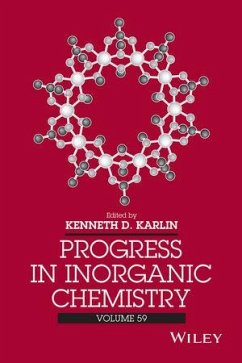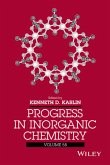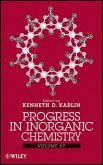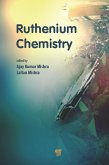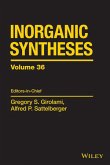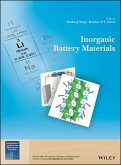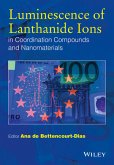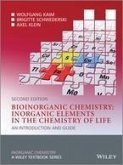This series provides inorganic chemists and materials scientists with a forum for critical, authoritative evaluations of advances in every area of the discipline. Volume 59 continues to report recent advances with a significant, up-to-date selection of contributions by internationally-recognized researchers.
The chapters of this volume are devoted to the following topics: . Iron Catalysis in Synthetic Chemistry . A New Paradigm for Photodynamic Therapy Drug Design: Multifunctional, Supramolecular DNA Photomodification Agents Featuring Ru(II)/Os(II) Light Absorbers Coupled to Pt(II) or Rh(III) Bioactive Sites . Selective Binding of Zn2+ Complexes to Non-Canonical Thymine or Uracil in DNA or RNA. . Progress Toward the Electrocatalytic Production of Liquid Fuels from Carbon Dioxide . Monomeric Dinitrosyl Iron Complexes: Synthesis and Reactivity . Interactions of Nitrosoalkanes/arenes, Nitrosamines, Nitrosothiols, and Alkyl Nitrites with Metals . Aminopyridine Iron and Manganese Complexes as Molecular Catalysts for Challenging Oxidative Transformations
The chapters of this volume are devoted to the following topics: . Iron Catalysis in Synthetic Chemistry . A New Paradigm for Photodynamic Therapy Drug Design: Multifunctional, Supramolecular DNA Photomodification Agents Featuring Ru(II)/Os(II) Light Absorbers Coupled to Pt(II) or Rh(III) Bioactive Sites . Selective Binding of Zn2+ Complexes to Non-Canonical Thymine or Uracil in DNA or RNA. . Progress Toward the Electrocatalytic Production of Liquid Fuels from Carbon Dioxide . Monomeric Dinitrosyl Iron Complexes: Synthesis and Reactivity . Interactions of Nitrosoalkanes/arenes, Nitrosamines, Nitrosothiols, and Alkyl Nitrites with Metals . Aminopyridine Iron and Manganese Complexes as Molecular Catalysts for Challenging Oxidative Transformations
Dieser Download kann aus rechtlichen Gründen nur mit Rechnungsadresse in D ausgeliefert werden.

